In the Spring 2011 semester, MCSI presented a semester-long event series on “Schooling in Mass Societies”.
This event series pursued a dialogue between (i) debates about educational policy and (ii) the study of mass schooling as a prominent element of societies throughout the world over the last two centuries or so (since the industrial revolution, roughly speaking).
The MCSI event series was particularly concerned with the relationship between schooling, on the one hand, and global and local social inequalities, processes of standardization (of languages and identities, for instance), the composition of labor markets, and the entry of secular knowledge into everyday habits of mind, on the other. We looked at all levels of schools, from pre-school though higher education. Our goal was to use the investigation of schooling as a social-historical phenomenon to expand and improve ongoing debates about educational policies and practices.
Speakers & Events for Spring 2011
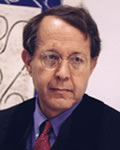 Jonathan Zimmerman
Jonathan Zimmerman
January 20
Watch the video on YouTube
“The Birds, the Bees, and the World: How Sex Education Encircled the Globe”
Jonathan Zimmerman is professor of education and history at NYU. His past books include Innocents Abroad: American Teachers in the American Century (2006), Whose America? Culture Wars in the Public Schools (2005), and Distilling Democracy: Alcohol Education in America’s Public Schools (1999). He spent two years in Nepal as a school teacher.
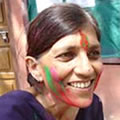
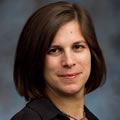 Nita Kumar and Diana Selig
Nita Kumar and Diana Selig
February 1
Watch the video on YouTube
Panel Discussion on Current Issues in Research on the History of Schooling
Nita Kumar‘s many books include Lessons from Schools: A is the author of History of Education in Banaras (2000) and The Politics of Gender, Community, and Modernity: Essays on Education (2007). She holds the Brown Family Chair of South Asian History at Claremont McKenna College.
Diana Selig is the author of Americans All: The Cultural Gifts Movement, a study of early efforts at multicultural education, as well as articles on the history of social science, childhood, and race in the United States. She is an associate professor of history at Claremont McKenna College.
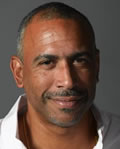 Pedro Noguera
Pedro Noguera
February 8
Watch the video on YouTube
“Creating the Schools We Need: What We Can Learn from Schools that are Succeeding in Communities Where Poverty is Concentrated and Hope is Scarce”
Pedro Noguera is one of the leading figures in the study of urban schools and achievement gaps in U.S. society. His many influential books include The Trouble With Black Boys…and Other Reflections on Race, Equity and the Future of Public Education, and Unfinished Business: Closing the Achievement Gap in Our Nation’s Schools as well as City Kids, City Teachers, co-authored with Bill Ayers and Greg Michie. Dr. Noguera was a classroom teacher in public schools in Providence, RI and Oakland, CA. He is currently the Peter L. Agnew Professor of Education at New York University, a trustee of the State University of New York and a frequent commentator on school issues on National Public Radio and other national news outlets.
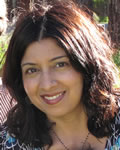 Shalini Shankar
Shalini Shankar
March 1
Watch the video on YouTube
“Style and Language Use among Youth of the New Immigration”
Shalini Shankar is the author of Desi Land: Teen Culture, Class, and Success in Silicon Valley (2008), as well as a series of articles on consumerism, language, and identity, including “Real to Real: Desi Teens’ Linguistic Engagement with Bollywood” and a forthcoming review essay on “Language and Materiality.” She is an associate professor of anthropology and Asian American studies at Northwestern University.
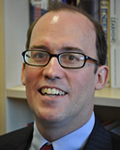 Richard D. Kahlenberg
Richard D. Kahlenberg
March 8
Watch the video on YouTube
“Should Affirmative Action Be Based on Race or Class?”
Richard D. Kahlenberg is a senior fellow at The Century Foundation. His many publications include Tough Liberal: Albert Shanker and the Battles Over Schools, Unions, Race and Democracy ( 2007) and The Remedy: Class, Race, and Affirmative Action (1996). His articles have been published in the New York Times, the Washington Post, the Wall Street Journal, and the New Republic. Kahlenberg has previously served as a visiting associate professor of constitutional law at George Washington University and as a legislative assistant to Senator Charles S. Robb (D-VA). He currently serves on the advisory board of the Pell Institute and is a graduate of both Harvard College and Harvard Law School. Between college and law school, he spent a year at the University of Nairobi School of Journalism as a Rotary Scholar.
Richard Kahlenberg’s talk cosponsored with the Scripps College Humanities Institute.
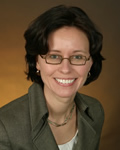 Amy Stambach
Amy Stambach
George C.S. Benson Auditorium
Watch the video on YouTube
“Education and Evangelism in Africa: the Entry of Religious Knowledge into Secular Habits of Mind”
Amy Stambach is the author of Faith in Schools: Religion, Education, and American Evangelicals in East Africa (2010) and Lessons from Mount Kilimanjaro: Schooling, Community and Gender in East Africa (2000). She is a member of the editorial board of both Anthropology and Education Quarterly and The British Journal of the Sociology of Education. She serves as the Director of Global Studies at the University of Wisconsin-Madison, where she is a professor of Educational Policy Studies and Anthropology.
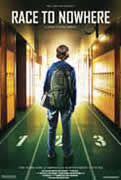 Film Screening
Film Screening
March 29, Garrison Theater, Scripps College Peforming Arts Center
Screening of Race to Nowhere (2010), followed by a discussion with the director Vicki Abeles and panelists Gilda Ochoa and YouYoung Kang.
Race to Nowhere has helped catalyze and shape public debate about the pressures faced by schoolchildren and their teachers in schools that send large numbers of their students to selective undergraduate institutions—the Claremont Colleges, for example. Race to Nowhere is director Vicki Abeles‘ first feature documentary. Using a hybrid distribution model of screening the film in theaters as well community forums, in combination with a social activist campaign, Abeles is on the cutting-edge of independent film distribution. In December, The New York Times published this article on the social impact of this film.
Gilda Ochoa is an Associate Professor of Sociology and Chicana/o-Latina/o Studies at Pomona College. She is the author of Becoming Neighbors in a Mexican American Community (2004) and Learning from Latino Teachers (2007).
YouYoung Kang is an Associate Professor of Music at Scripps College. Professor Kang’s research and teaching focuses on race and identity in Korean and US musics, as well as on theory pedagogy. Her many publications include the Korean American section of the entry on “United States of America” in the New Grove Dictionary of Music and Musicians (2001).
This screening of Race to Nowhere and the panel discussion following it are co-sponsored with the Scripps College Humanities Institute.
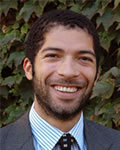 Matthew Delmont
Matthew Delmont
April 5
Watch the video on YouTube
“How Television Thwarted Busing for School Desegregation”
Matthew Delmont is Assistant Professor of American Studies at Scripps College. He is the author of “The Plight of the ‘Able Student’: Ruth Wright Hayre and the Struggle for Equality in Philadelphia’s Black High Schools, 1955-1965,” in the History of Education Quarterly (2010) and “Michael Jackson & Television before Thriller,” in the Journal of Pan-African Studies (2010), as well as the forthcoming book, The Nicest Kids in Town: American Bandstand and School Segregation in Postwar Philadelphia.
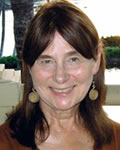 Carolyn Maher
Carolyn Maher
April 12
Watch the video on YouTube
“Mathematics in Schools and The Demise of Reasoning: Is There an Alternative?”
Carolyn Maher is director of the Robert B. Davis Institute for Learning and the editor of the Journal of Mathematical Behavior. A professor of mathematics education at Rutgers University, Maher has co-authored numerous articles on proof-making in mathematics education and on the development of mathematical thinking in K-12 students. Her research on mathematics education is distinctive for its development of an extended longitudinal study and its use of video.
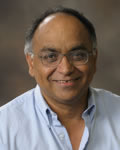 Fazal Rizvi
Fazal Rizvi
April 19
“Reading Diversity in Transnational Settings”
Fazal Rizvi’s books include Globalizing Education Policy (2009, with Bob Lungard) and the edited volume, Youth Moves: Identities and Globalisation in a Global Context (2008). He is a professor in the Graduate School of Education at Melbourne University and the past editor of Discourse: Studies in the Cultural Politics of Education.
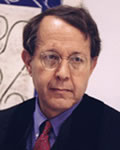 Jonathan Kozol
Jonathan Kozol
April 26, Garrison Theater, Scripps College Performing Arts Center
“Shame of the Nation: Race, Poverty, and the Struggle for Our Public Schools”
In 1967, Jonathan Kozol published Death at an Early Age, based on his first year as a teacher in the Boston Public Schools. From that point to the present, Kozol has been a singular chronicler and analyst of the monstrous inequalities of K-12 education in the United States. His subsequent books include Rachel and Her Children: Homeless Families in America (1988), Savage Inequalities: Children in America’s Schools (1991), Amazing Grace: The Lives of Children and the Conscience of a Nation (1995), and The Shame of the Nation: The Restoration of Apartheid Schooling in America (2005).
Jonathan Kozol’s talk co-sponsored with both the Scripps Humanities Institute and the Alexa Fullerton Hampton Speaker Series: Voice and Vision, Scripps College.
Fall 2010 Symposium
Saturday, 13 November
ACTUALLY EXISTING DEMOCRACY (AND WHY IT IS SO LITTLE DEMOCRATIC) features Lisa Hajjar and Daniel HoSang.
Lisa Hajjar is Associate Professor in the Law and Society Program at the University of California, Santa Barbara. She has just returned from the US naval base at Guantanamo Bay, Cuba, where she has been an observer of the proceedings in the case of Omar Khadr. She will be observing at Guantanamo again, just before our symposium. Her numerous, influential publications include: Human Rights: Critical Concepts in Political Science, Vols. 1-5., co-edited with Richard Falk and Hilal Elver (2008), as well as Courting Conflict: The Israeli Military Court System in the West Bank and Gaza (2005).
Daniel HoSang is Assistant Professor of Ethnic Studies and Political Science at the University of Oregon. His path-breaking book, Racial Propositions: Ballot Initiatives and the Making of Postwar California, will be published in November by the University of California Press. His previous publications include: “The Rise of Racial Liberalism, the Decline of Racial Justice: Lessons from California,” in Joe Lowndes, Julie Novkov, and Dorian Warren eds., Race and American Political Development (2008) and “Beyond Policy: Race, Ideology and the Re-imagining of Youth,” in S. Ginwright, P. Noguera, and J. Cammarota eds., Beyond Resistance! Youth Activism and Community Change: New Democratic Possibilities for Practice and Policy for America’s Youth (2006).
After their presentations, Professors Hajjar and HoSang will be joined for a roundtable discussion with Claremont Colleges faculty Geoffrey Herrera (Pitzer, Political Studies) and Heather Williams (Pomona, Politics).
ACTUALLY EXISTING DEMOCRACY (AND WHY IT IS SO LITTLE DEMOCRATIC) will explore the multitude of factors that diminish, thwart, and pervert democracy in the contemporary U.S. and contemporary world.
Co-Sponsored Events for Winter/Spring 2011
April 28, 2011
Uncommon Common Ground: Race and America’s Future
A presentation from Stewart Kwoh and Manuel Pastor
 Stewart Kwoh is the president and executive director of the Asian Pacific American Legal Center of Southern California (APALC). In 1998, he was named a MacArthur Foundation Fellow. Reflecting Kwoh’s commitment to improving human relations between and among racial groups in Los Angeles, APALC has pioneered the development of programs, coalitions and projects that build bridges with other racial groups. One of its programs,Leadership Development in Interethnic Relations, has been featured several times in the Los Angeles Times and other media outlets. Kwoh earned his Bachelor of Arts at UCLA and his Juris Doctorate degree from the UCLA Law School. He serves on the board of numerous organizations, including The California Endowment, the California Wellness Foundation, the Fannie Mae Foundation and the United Way of Greater Los Angeles. He was chair of the board of directors of The California Endowment—the largest health foundation in California—from 2000–2002. He is also vice-chair of the board of directors for the National Asian Pacific American Legal Consortium (NAPALC), the country’s first national pan Asian civil rights organization.
Stewart Kwoh is the president and executive director of the Asian Pacific American Legal Center of Southern California (APALC). In 1998, he was named a MacArthur Foundation Fellow. Reflecting Kwoh’s commitment to improving human relations between and among racial groups in Los Angeles, APALC has pioneered the development of programs, coalitions and projects that build bridges with other racial groups. One of its programs,Leadership Development in Interethnic Relations, has been featured several times in the Los Angeles Times and other media outlets. Kwoh earned his Bachelor of Arts at UCLA and his Juris Doctorate degree from the UCLA Law School. He serves on the board of numerous organizations, including The California Endowment, the California Wellness Foundation, the Fannie Mae Foundation and the United Way of Greater Los Angeles. He was chair of the board of directors of The California Endowment—the largest health foundation in California—from 2000–2002. He is also vice-chair of the board of directors for the National Asian Pacific American Legal Consortium (NAPALC), the country’s first national pan Asian civil rights organization.
 Manuel Pastor is professor of Geography and American Studies & Ethnicity at the University of Southern California where he also serves as director of USC’s Program for Environmental and Regional Equity (PERE) and co-director of USC’s Center for the Study of Immigrant Integration (CSII). Founding director of the Center for Justice, Tolerance, and Community at the University of California, Santa Cruz, Manuel holds an economics Ph.D. from the University of Massachusetts, Amherst and has received countless fellowships. In recent years, his research has focused on the economic, environmental and social conditions facing low-income urban communities in the U.S. His most recent book, co-authored with Chris Benner and Martha Matsuoka, is This Could Be the Start of Something Big: How Social Movements for Regional Equity are Reshaping Metropolitan America (Cornell University Press, 2009). Previous volumes include Staircases or Treadmills: Labor Market Intermediaries and Economic Opportunity in a Changing Economy (Russell Sage, 2007); Searching for the Uncommon Common Ground: New Dimensions on Race in America; and Regions That Work: How Cities and Suburbs Can Grow Together. He served as a member of the Commission on Regions appointed by California’s Speaker of the State Assembly, and in January 2002 was awarded a Civic Entrepreneur of the Year award from the California Center for Regional Leadership. He is currently a member of the Regional Targets Advisory Committee for the California Air Resources Board and is also a member of the Building Resilient Regions research network sponsored by the MacArthur Foundation.
Manuel Pastor is professor of Geography and American Studies & Ethnicity at the University of Southern California where he also serves as director of USC’s Program for Environmental and Regional Equity (PERE) and co-director of USC’s Center for the Study of Immigrant Integration (CSII). Founding director of the Center for Justice, Tolerance, and Community at the University of California, Santa Cruz, Manuel holds an economics Ph.D. from the University of Massachusetts, Amherst and has received countless fellowships. In recent years, his research has focused on the economic, environmental and social conditions facing low-income urban communities in the U.S. His most recent book, co-authored with Chris Benner and Martha Matsuoka, is This Could Be the Start of Something Big: How Social Movements for Regional Equity are Reshaping Metropolitan America (Cornell University Press, 2009). Previous volumes include Staircases or Treadmills: Labor Market Intermediaries and Economic Opportunity in a Changing Economy (Russell Sage, 2007); Searching for the Uncommon Common Ground: New Dimensions on Race in America; and Regions That Work: How Cities and Suburbs Can Grow Together. He served as a member of the Commission on Regions appointed by California’s Speaker of the State Assembly, and in January 2002 was awarded a Civic Entrepreneur of the Year award from the California Center for Regional Leadership. He is currently a member of the Regional Targets Advisory Committee for the California Air Resources Board and is also a member of the Building Resilient Regions research network sponsored by the MacArthur Foundation.
Co-sponsors: The Latino/a Roundtable, Sociology at Pitzer College, and the Munroe Center for Social Inquiry at Pitzer College.
Haiti After the Earthquake: Outsiders, Insiders, and the Twin Narratives of Charity and Dependence
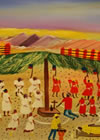 February 1, 2011
February 1, 2011
Panel Discussion: “Remembering Haiti”
Amy Wilentz is the author of The Rainy Season: Haiti–Then and Now (reissued with a new introduction in 2010), as well as numerous articles on contemporary Haiti, including “Running in the Ruins,” published in The New Yorker this past September. She is also a long-time contributing editor to The Nation and the author of the lead essay in Thirty Ways of Looking at Hillary. She teaches in the Literary Journalism program at the University of California, Irvine.
Co-sponsored by the 5C-Coalition for Peace and Justice & the Munroe Center for Social Inquiry at Pitzer College.